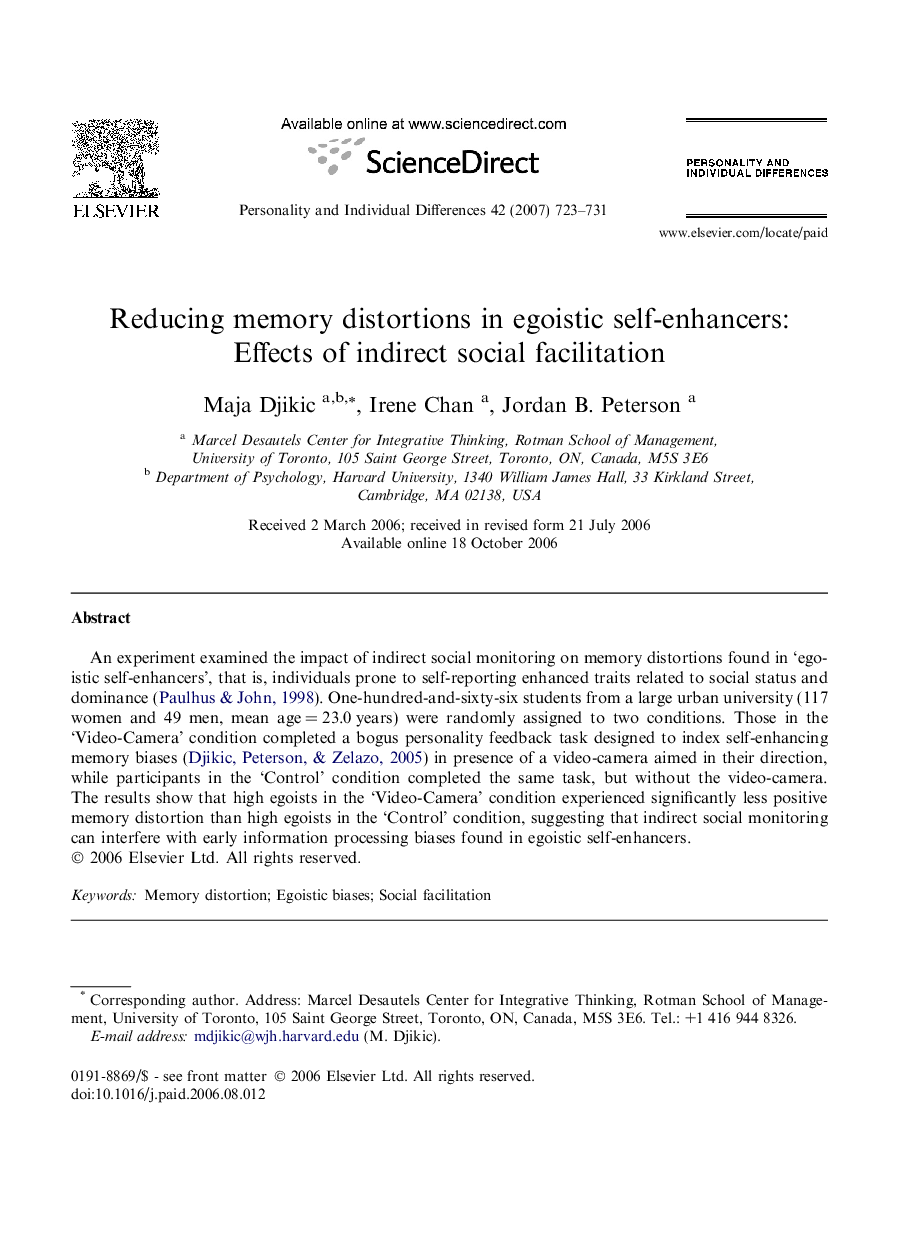| Article ID | Journal | Published Year | Pages | File Type |
|---|---|---|---|---|
| 10440734 | Personality and Individual Differences | 2007 | 9 Pages |
Abstract
An experiment examined the impact of indirect social monitoring on memory distortions found in 'egoistic self-enhancers', that is, individuals prone to self-reporting enhanced traits related to social status and dominance (Paulhus & John, 1998). One-hundred-and-sixty-six students from a large urban university (117 women and 49 men, mean age = 23.0 years) were randomly assigned to two conditions. Those in the 'Video-Camera' condition completed a bogus personality feedback task designed to index self-enhancing memory biases (Djikic, Peterson, & Zelazo, 2005) in presence of a video-camera aimed in their direction, while participants in the 'Control' condition completed the same task, but without the video-camera. The results show that high egoists in the 'Video-Camera' condition experienced significantly less positive memory distortion than high egoists in the 'Control' condition, suggesting that indirect social monitoring can interfere with early information processing biases found in egoistic self-enhancers.
Keywords
Related Topics
Life Sciences
Neuroscience
Behavioral Neuroscience
Authors
Maja Djikic, Irene Chan, Jordan B. Peterson,
